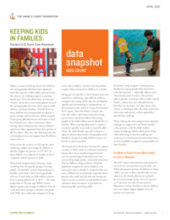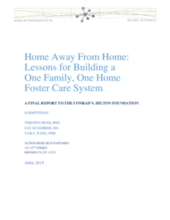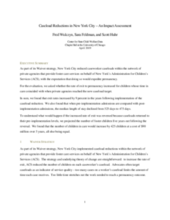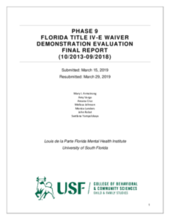Displaying 981 - 990 of 2176
In this opinion piece for the New York Times, Sindy Flores, a mother and migrant to the US from Honduras, writes about her experience of family separation in the US.
In this data snapshot, the Annie E. Casey Foundation examines how placements for young people in foster care have changed from 2007 to 2017.
This report describes lessons learned from a centerpiece of Home Away From Home: coaching, technical assistance, and data analysis activities aimed to improve the recruitment, training, support and retention of foster homes and build kinship caregiving capacity.
This webinar offers foundational information related to the intersection of culture, the migration journey, trauma and assessment.
For this evaluation, the authors asked whether the rate of exit to permanency increased for children whose time in foster care in New York City coincided with when private foster care agencies reached the new reduced caseload target.
This report presents findings from an implementation analysis aimed at describing implementation of the U.S. state of Florida Title IV-E Demonstration Project, which allowed the state to use certain federal funds more flexibly, for services other than room and board expenses for children served in out-of-home care.
As technology enhancements effectively augment family-based interventions, the purpose of this study was to pilot a smartphone application (app) in the context of a trauma and behavior management-informed training for foster and kinship caregivers.
In the current study, the authors examined the factor structure of the Children’s Depression Inventory in an ethnically diverse sample of adolescents in foster care in the US and examined the configural invariance of the measure across ethnic groups.
This article focuses on the “zero-tolerance” policy adopted in spring, 2018, in the USA. The implementation of this policy resulted in the forced separation of children from their families and the violation of human rights of those detained in authorized facilities and foster care.
This article focuses on the “zero-tolerance” policy adopted in spring, 2018, in the USA.




